If you are interested in the Chinese market, you might have already noticed that Chinese consumers are fond of cosmetics and skincare products from abroad. Attracting hundreds of international companies every year, the Chinese skincare market is the second-largest in the world, and its growth is not likely to stop in the years to come.
Since 2010, it has registered steady growth and the growing use of e-commerce platforms and Chinese consumers’ increasing purchasing power are key factors of this success. According to Mintel, the skincare industry in China is expected to exceed 60 billion dollars by 2050. Thus, this is why the Chinese skincare market represents a very good opportunity for those who want to do business in China.
Why is China an Interesting Market for Foreign Cosmetics Brands?
As a result of urbanization and modernization, growing disposable income, and social media, the beauty, and skincare market is facing a burgeoning demand for higher quality and premium products. Chinese consumers are more than ever paying attention to their appearance and skin.
Even though cosmetics and skincare products were at first mainly used by female consumers, male consumers are now more inclined to use cosmetics as part of their daily routine. Thus, thanks to its huge population, China is a good and promising market for cosmetic brands.
The cosmetics industry in China
With Chinese cosmetics being the second largest industry in the world, it is one of the most attractive and popular destinations for foreign brands that want to expand their activities overseas. Indeed, cosmetic products are now part of Chinese consumers’ daily life. Consumers’ demand for eco-friendly products has also increased these past few years.
In China, more women are joining the workforce, thus driving the instinct of looking good in the workplace. Moreover, the cosmetics industry has also witnessed a surge in demand among men. In fact, genderless cosmetics (and fashion) are one of the biggest trends in today’s China, especially when we’re talking about the skincare market.
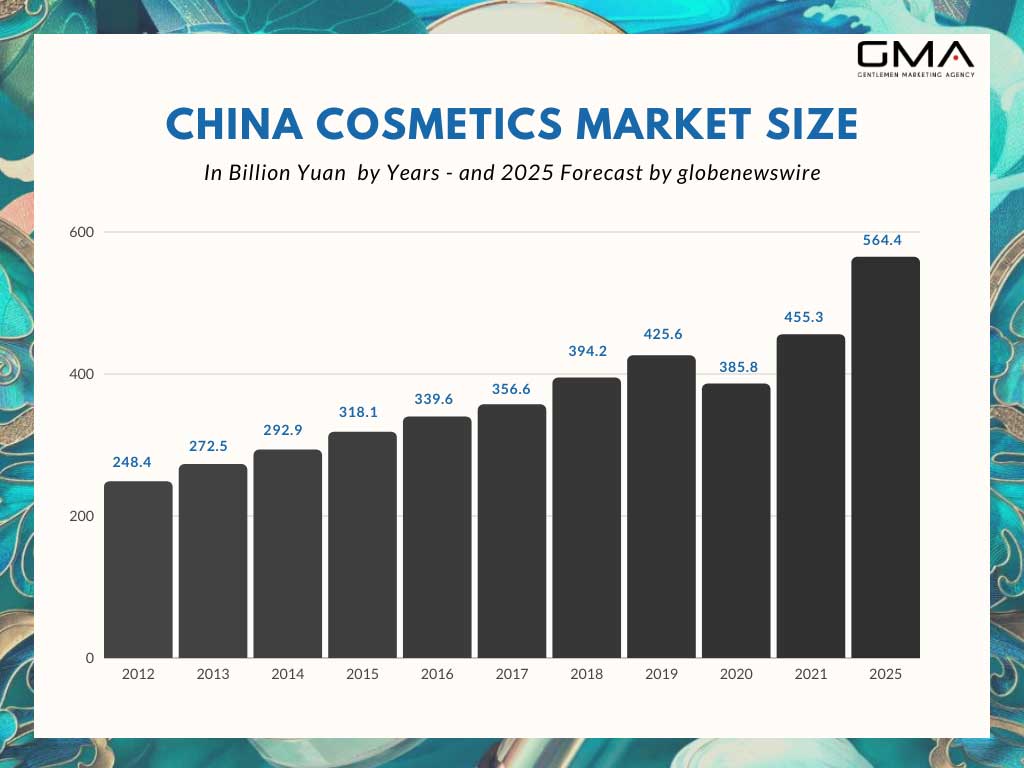
The Chinese Skincare Market Overview
In China, the skincare segment is the biggest and fastest-growing one within the Beauty & Personal Care market. With other segments such as haircare, fragrances, and color cosmetics, the Chinese skincare market has experienced double-digit market growth. Even though foreign brands tend to be more popular than domestic ones, this success benefits both Chinese and foreign companies.
Due to the popularity of skincare products from Japan and South Korea as well as natural ingredients that are particularly appreciated, skin care revenues will continue to increase steadily.
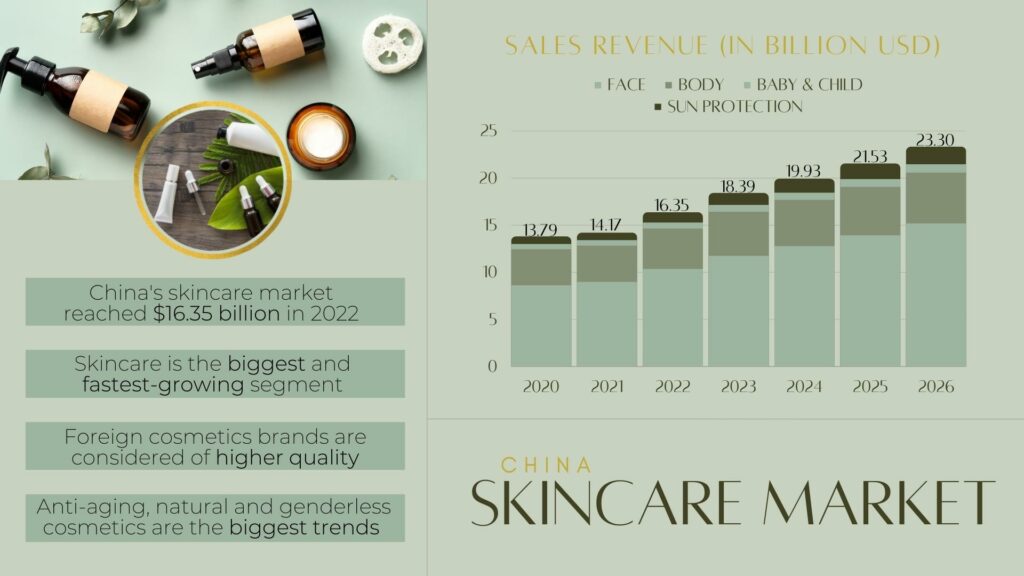
In 2020, the revenue generated by the skincare industry in China reached 13.79 billion dollars, and in 2022 it was already $16.35 billion. It’s expected to reach 23.30 billion dollars by 2026, with an annual growth of 8.78% between 2021 and 2025. As you can see above, anti-aging, natural, and genderless cosmetics are the biggest trends in the Chinese skincare market.
What do Chinese consumers like in terms of skincare products?
Chinese consumers tend to prefer foreign international brands over domestic brands. This can be explained by the fact that China had a lot of product scandals in the past, and foreign products are submitted to stricter regulations to enter the Chinese market.

According to this graphic, we can see that the two leading countries in terms of skin care products in China are Japan and Korea. It is estimated that 48% of Chinese consumers have Japanese skincare products, 44% have Korean products and 32% have European products.

Korean cosmetics are gaining in popularity over the last few years thanks to the hype around K-pop and Kdramas, with the younger generation (Millenials and Gen Z) following these celebrities on social media for example. Korean and Japanese cosmetic brands also adapt to Asian beauty standards, which a lot of European brands still don’t understand, which leads to failure in the skincare market in China.
Particularities of the Chinese Beauty & Skin Care market
For their skincare routine, Chinese consumers are using several products to exfoliate, wash and take care of their skin. In fact, Chinese consumers have some particularities that are beneficial and lucrative for cosmetic brands:
Their skin type
While in Western countries you will be able to find numerous products according to different types of skin, you will find products for the same type of skin in China, as the majority of the population kind of has the same one. Thus, they tend to buy products that fit their “greasy” skin with large pores and a shiny appearance (especially in the “T” zone).
Their skin is also very sensitive to external aggression (pollution, wind, dust …). They are aiming to have healthy and nourished skin and looking for cosmetics that will adapt to their skin type.
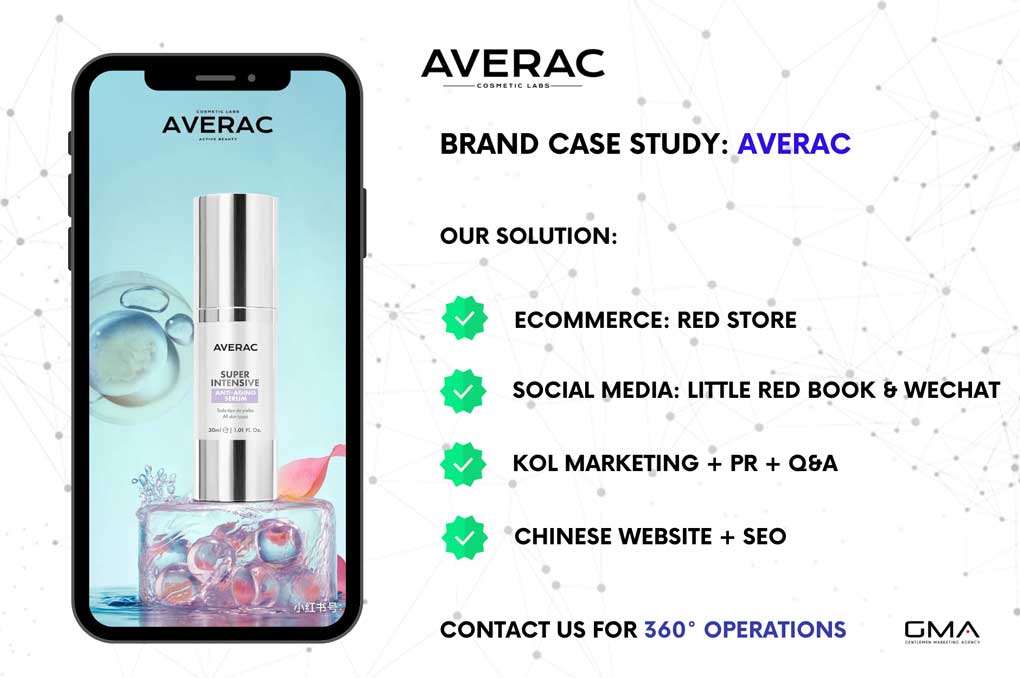
Whitening cosmetics
Chinese society describes the ideal woman as Bái fù mei 白富美 (white, rich, and beautiful): this is why all the celebrities and KOLs you will see on TV and in ads have extremely white skin. Synonym of social success, having white skin is deeply linked with a personal investment in cosmetics, in extension with wealth but also modernity and cleanliness. So, Chinese consumers prefer whitening products to tanning creams.
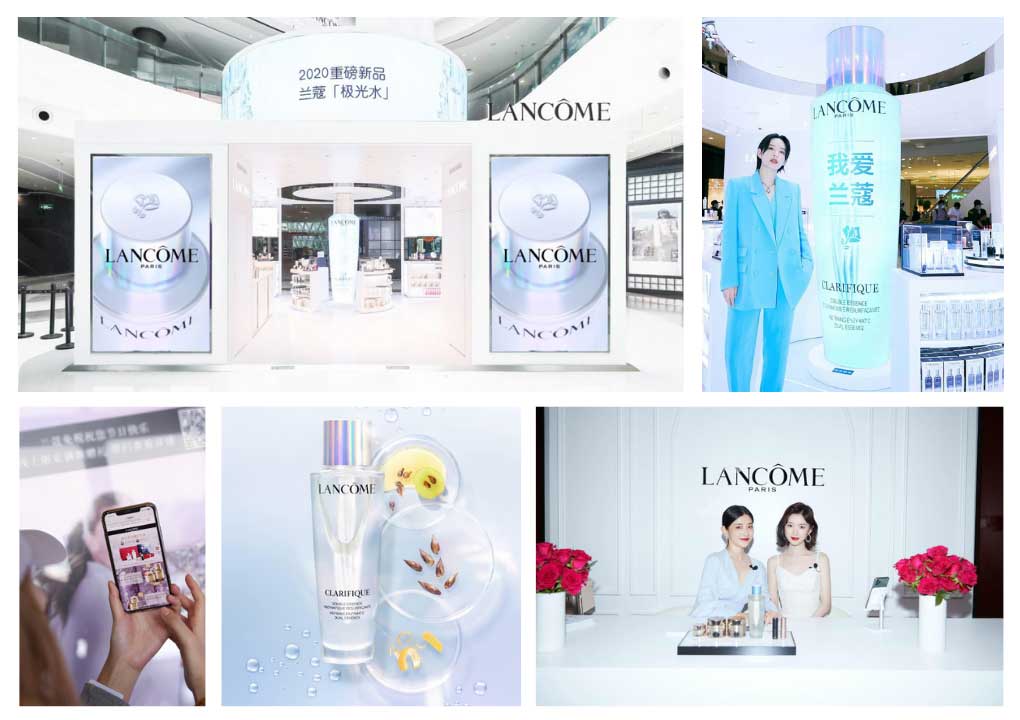
Rising purchasing power
Many people living in China’s big cities have benefited from increased purchasing power over the years which has resulted in a rise in the consumption of foreign products (particularly luxury products).
In addition, younger people tend to focus more on their appearance in terms of fashion and brands than the older generation. They are also more open to Western influences and prefer to invest in quality products than local products.
Pollution
Chinese people living in big cities are subjected to pollution and dust. Thus, they need to take care of their skin and hydrate them as much as possible. In fact, anti-pollution cosmetics are one of the biggest market trends this year, and it’s the market segment that will see a rise in the next years.
The market for anti-pollution products is driven by the increasing beauty consciousness of young people who want to keep their skin healthy and young, especially when it comes to the Millennial and urbanized population, which needs profound skin cleansing due to pollution.
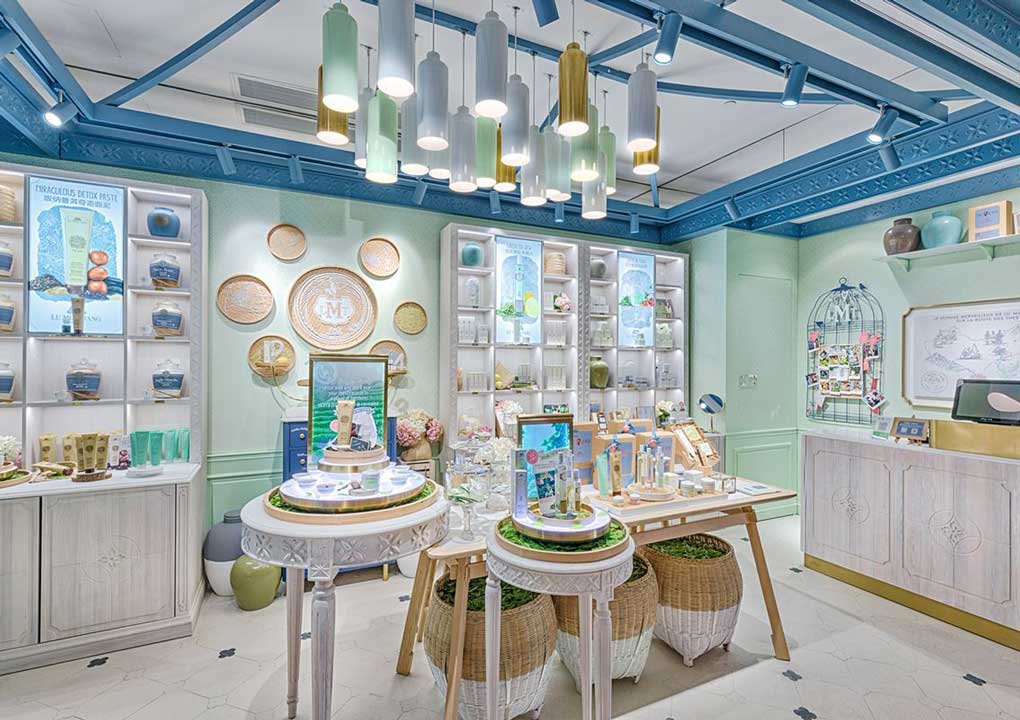
Foreign brands’ popularity
Following numerous scandals about Chinese brands, Chinese consumers tend to trust foreign brands more than local brands. Thus, you can take this to your advantage if you want to sell your products in China. However, it does not mean that every foreign brand will succeed in China! The competition is tough, and Chinese brands have plenty of ideas to create high-quality, creative, and innovative products, at a lower price than foreign brands.
The importance of appearance
A decade ago, Chinese consumers were not that much into cosmetics as the majority of them didn’t apply makeup every day. However, because of society’s evolution, Chinese people are more than ever conscious of their appearance. They engage in numerous skincare practices, applying many cosmetics that minimize skin aging effects, pollution effects, etc. They are spending more and more on beauty-related products, especially premium products from foreign brands.
What Types of Products You Should Sell in China?
According to the specificities and particularities mentioned earlier, you can focus on the following products: cleanser, lotion, toner, mask, etc. Thus, you can adapt your products to the Chinese market in the following areas:
Products against excess sebum
In order to regulate the oil production of their skin (which is one of their priority), you can put ingredients that will reduce the production of oil as well as hydrate the skin. It should be soft and soap-free in order not to irritate and attack sensitive skin. Mattifying moisturizers are also perfect for them, as well as masks and scrubs.
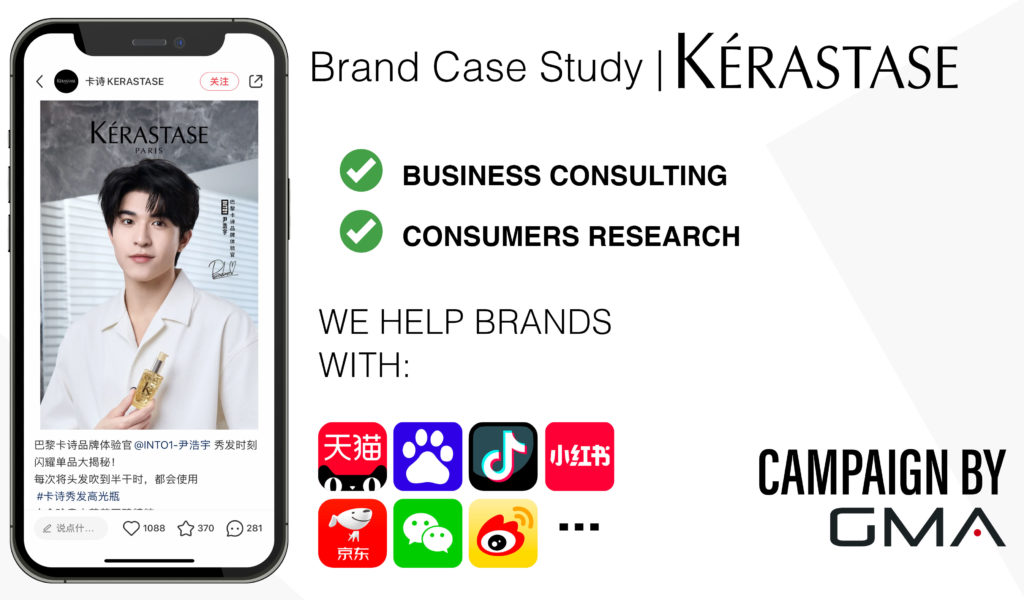
Whitening agents
As mentioned before, white skin is still a synonym for beauty in China, as well as in most Asian countries In China, most facial products have whitening agents included. In order to please Chinese consumers, you can adapt your products according to these criteria.
Organic products
Chinese consumers are increasingly sensitive to environmental issues. Due to their culture and the several scandals related to hygiene in China, these kinds of natural products are gaining more and more attention. If you are selling organic products, China can be a tremendous opportunity for you to increase your sales.
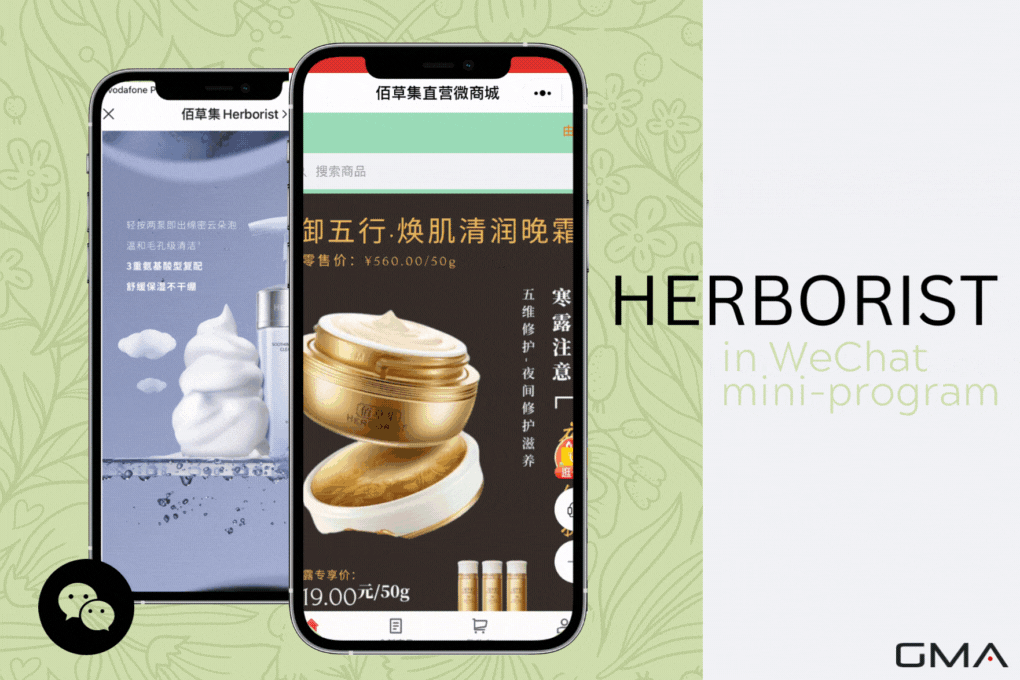
Cosmeceuticals
The mix of “cosmetics” and “pharmaceuticals” is becoming more popular in China because it meets dermatological needs in addition to purely aesthetic needs.
Seduce Chinese Consumers: How to Sell and Advertise Your Skincare Products?
Advertisements are everywhere in China: on the bus, metro, train stations, buildings, stores, commercial centers, bakeries, and so on. However, following China’s digitalization and its tech-savvy population, the best way to promote your business is to create social media accounts. You will then be able to advertise effectively your products in the Chinese market. To stand out, you need to know Chinese consumers’ tastes and adapt your product to their needs.
Flashy and original packaging
Several skincare products are launched every day in China. The competition is tough and your competitors are going to be creative and innovative. Thus, you have to be quicker than them, creating more creative packaging. To stand out you must choose a packaging that will attract their attention: focus on the colors, the way to open the package, the size, the material used, etc.
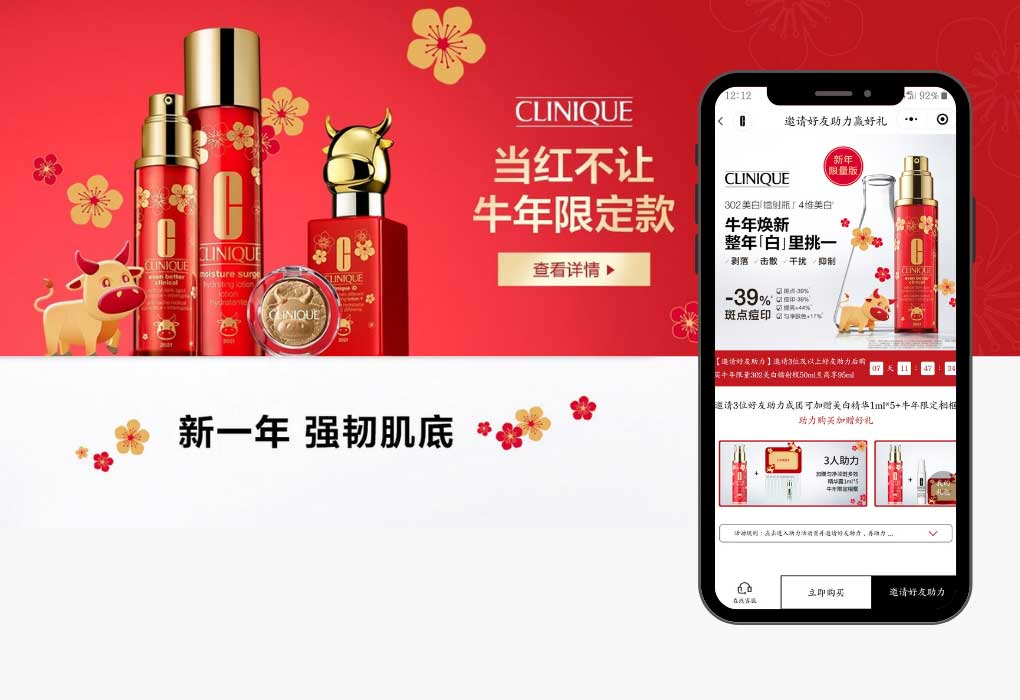
You should also prepare special packages for events such as the Chinese New Year, Mother’s Day, Valentine’s Day, Christmas, and of course, Single’s Day (also known as 11.11).
Win their trust through KOLs
You have to know that in order to promote your products, one of the best ways to attract consumers and increase your sales is to partner with a KOL (Key Opinion Leader). As a matter of fact, Chinese consumers will be more likely to trust a KOL than an advertisement. That’s why doing partnerships with KOLs is a good strategy to gain visibility on the market and win Chinese trust.
Create your community on social networks
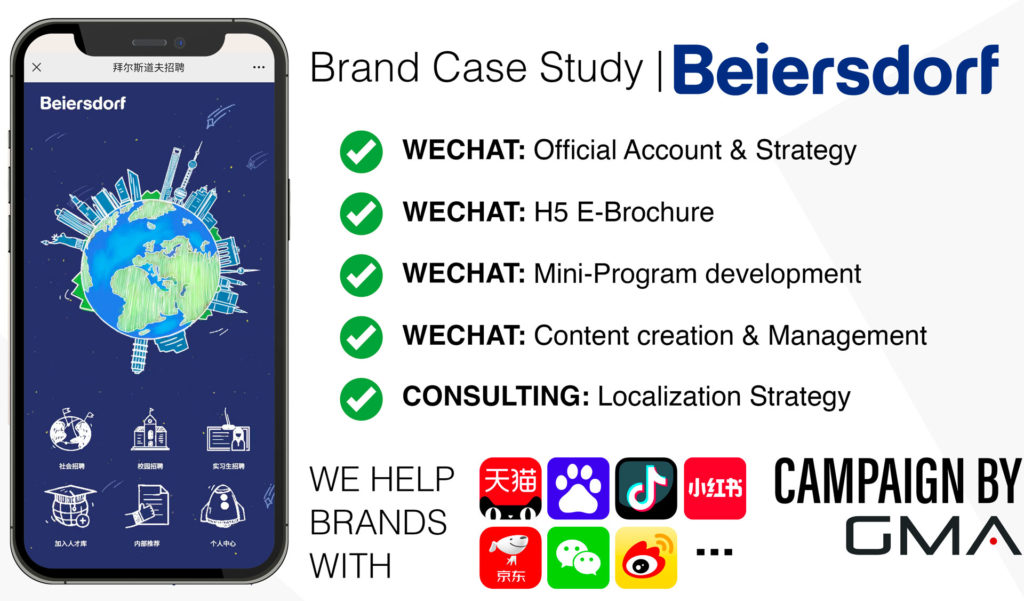
Having an official account on social networks is mandatory when implementing your brand in China! Be careful, foreign apps such as Facebook, Twitter, Instagram, Pinterest, etc are not available in China. You will have to use Chinese social media to promote your products and your company.
The best platform (apart from WeChat which is almost mandatory for any brand wanting to succeed in China) is Xiaohongshu, or Little Red Book which is often compared to Instagram. It’s a very versatile platform and social e-commerce place, where people recommend and review products, usually from the fashion and beauty industry, so that their followers can know which products are worth buying.
The most popular platforms to sell your skincare products in China are:
Tmall
Tmall is the most popular e-commerce website in China. Launched in 2008 by the giant Alibaba, Tmall is mainly focused on big companies. The process is long and fastidious, and the fees can be considered too expensive for smaller companies. Tmall requires its merchant to have high-quality skincare products, as well as an online reputation in China before applying.
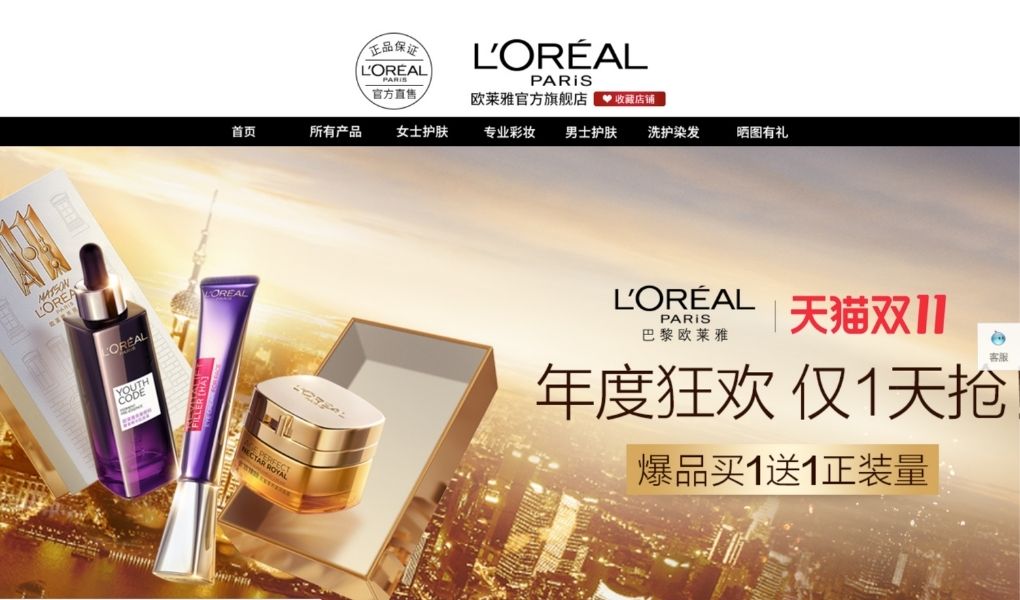
JD.com
JD.com is Tmall’s main competitor, being another popular e-commerce website in China. JD.com has a wonderful catalog of products, from fresh grocery foods to high-tech and new technologies-related products. However, the process is kind of the same as Tmall, and it will be difficult for smaller companies to be allowed to sell on JD.com.
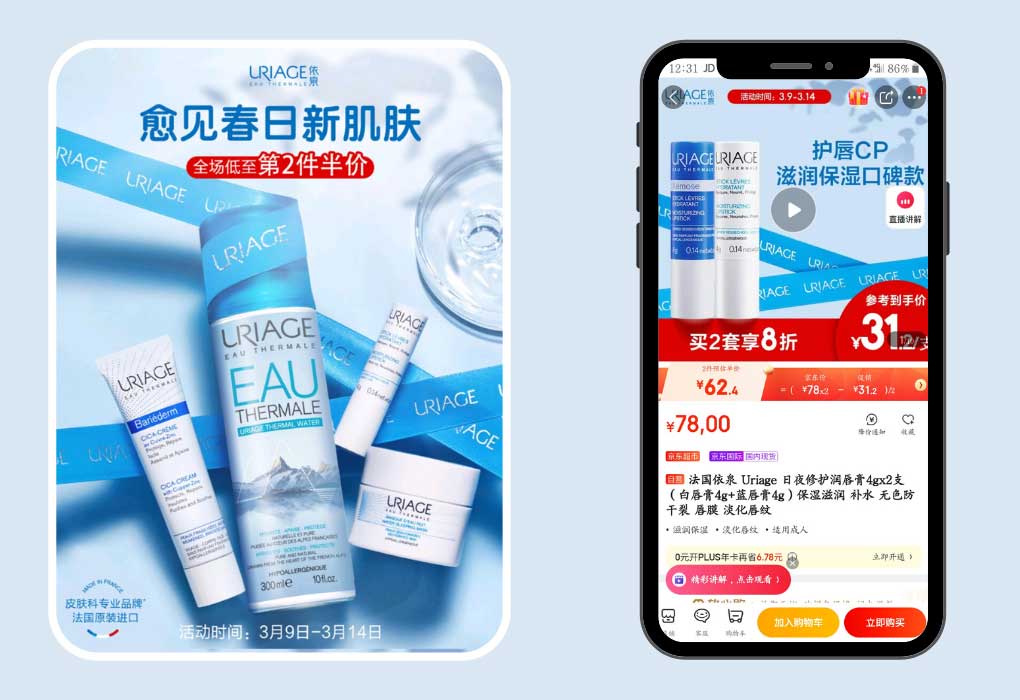
Taobao
Launched in 2003 by the giant Alibaba, Taobao shares some similarities with its brother Tmall. However, while Tmall is specifically for the biggest international companies, Taobao is more focused on smaller domestic companies. The fees are indeed much less expensive than on Tmall, and the price is also very cheap.
To be able to sell on Taobao you will need to find a Chinese distributor or have a Chinese entity to be able to start your own flagship store on the platform. If you are interested in finding a Chinese skincare products distributor, we can help you with the search.
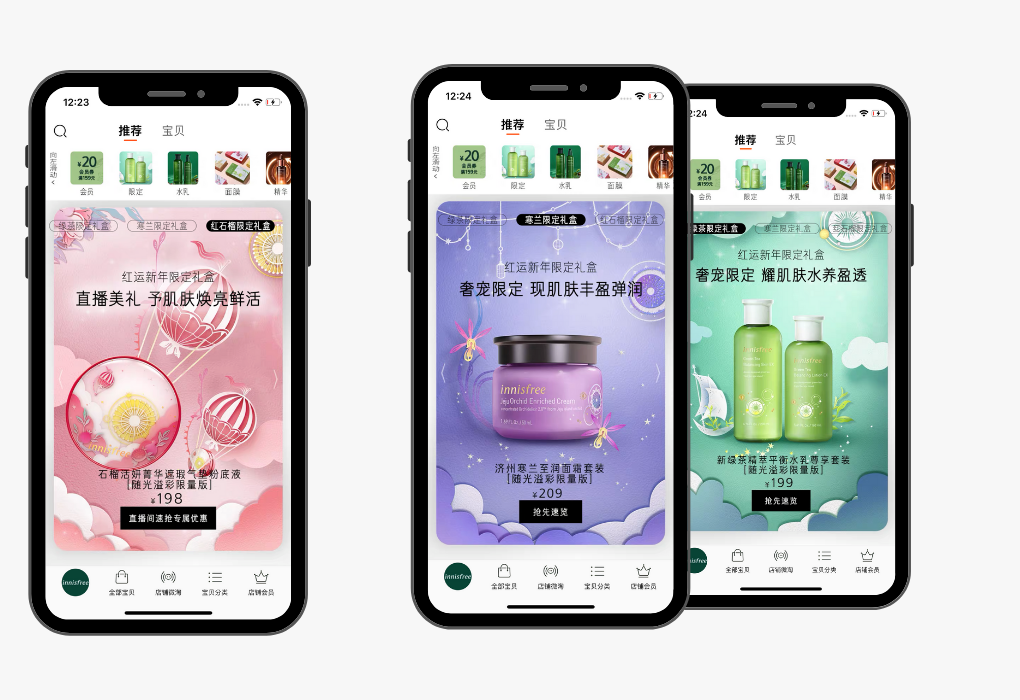
Xiaohongshu
Founded in 2013 by Charlwin Mao and Miranda Qu, Xiaohongshu (小红书) also known as ‘The Little Red Book’ and ‘RED’, is a social media and one of the world’s largest community e-commerce platforms. Over the years, it has grown to become China’s foremost shopping platform in terms of beauty, fashion and luxury products. In 2018, was listed on Forbes’ “Top 50 Most Innovative Companies in China 2018” list.
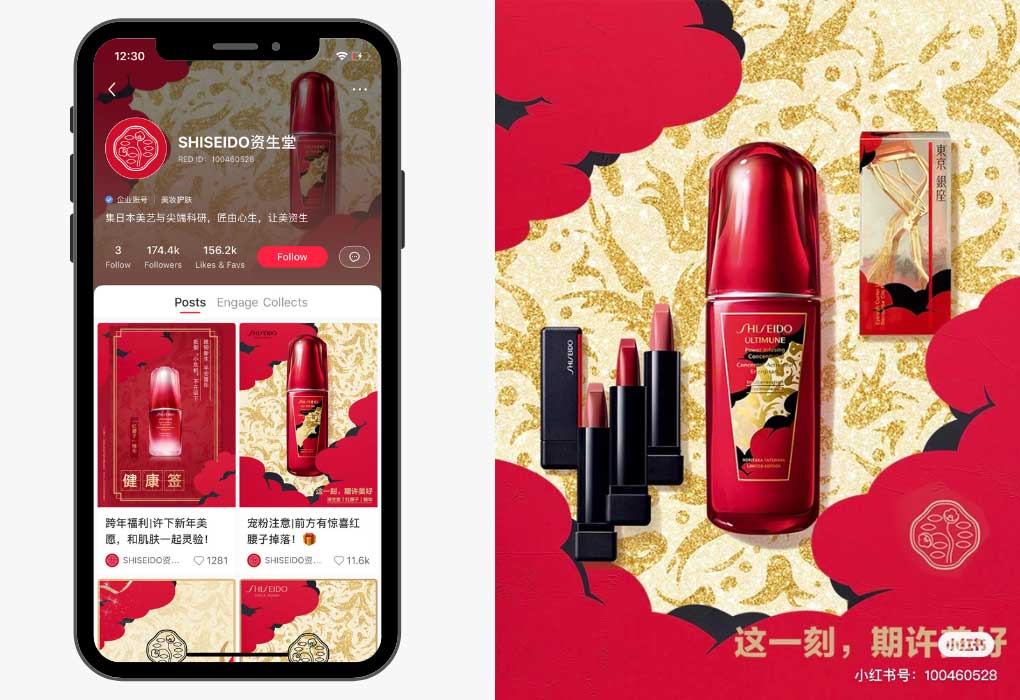
The most popular platforms to promote your cosmetics company in China:
Some of them we already mentioned earlier briefly, like WeChat and Xiaohongshu, but let’s take a closer look:
Introduced in 2011 by Tencent, WeChat is one of China’s top tech companies. With one billion monthly active users, it is the most popular messaging app in China but it also has a large ecosystem of services. Thanks to WeChat, you will be able to create H5 Brochures, promote your skincare products through Wechat moments, etc.
You can also start an official account on the platform, where you will be in touch with the consumers in the Chinese beauty market, posting announcements, special deals, and so on.

You can also build your own WeChat store and sell your skincare products inside the platform, which is way cheaper than the main online marketplaces, and in fact, most young consumers prefer to buy products through Chinese social media platforms, growing China skincare market size even more.
Launched in 2009 by the Chinese technology company Sina Corporation (新浪), Weibo (微博) is one of the biggest social media platforms in China. As its name indicates (“micro-blog”), Weibo provides micro-blogging services and is often compared to Twitter. However, it has evolved into a microblogging hybrid with Instagram, Pinterest, Reddit, and YouTube over the years.
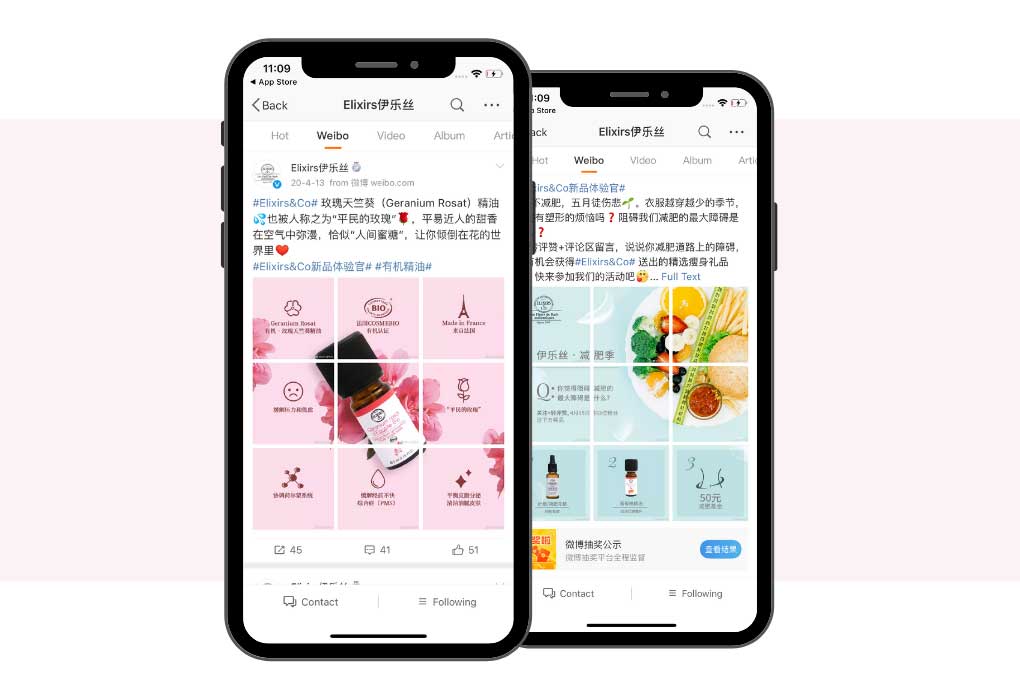
Douyin
Launched in 2016 and developed by the Chinese tech firm Beijing Bytedance, Douyin quickly became one of the fastest-growing short video apps in China. This sharing video platform allows users to watch and create short videos with music in the background, stickers, and animations thanks to easy-to-use video creation tools. It also offers a live-streaming service, which generates crazy sales in the skincare market in China.

Douyin has greatly contributed to the development of the Chinese market in terms of innovations, new technologies, and means of communication. It has changed the way of advertising, with the rising popularity of sales agents on Douyin, but mostly to the emergence of KOLs (Key Opinion Leaders).
Douyin was able to break ground in terms of marketing strategies and communication between brands and consumers.
Baidu
Considered the “Chinese Google”, Baidu is the most popular Chinese search engine and stands as the 5th most consulted website in the world. You can also advertise your skincare products on Baidu with pay-per-click ads for example.
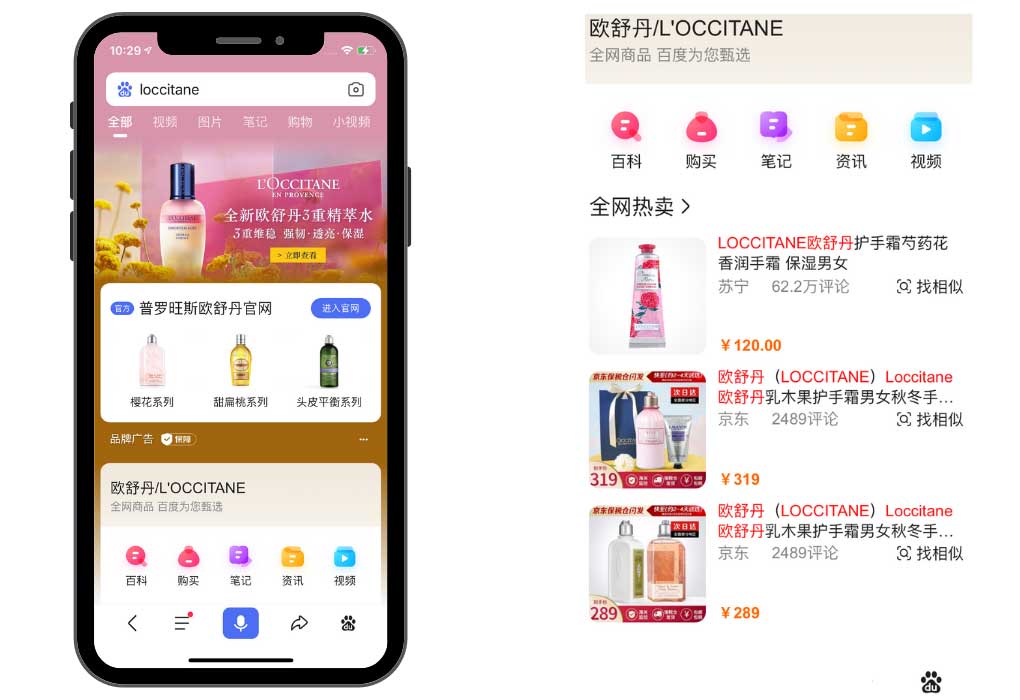
It is essential to be on the first pages of Baidu. To do so, you will have to create your Chinese website hosted in Mainland China.
Apart from the website, it’s also advisable to participate in Baidu’s community forums, especially those with China’s skincare market topics. You can contact us for more information on how to advertise your skincare products on Baidu.
Contact Us and Start Selling Your Skincare and Beauty Brand on the Chinese Market
As a Digital Marketing Agency established in China for more than 10 years, we were able to break through the Chinese market, helping hundreds of foreign brands enter the Chinese market.
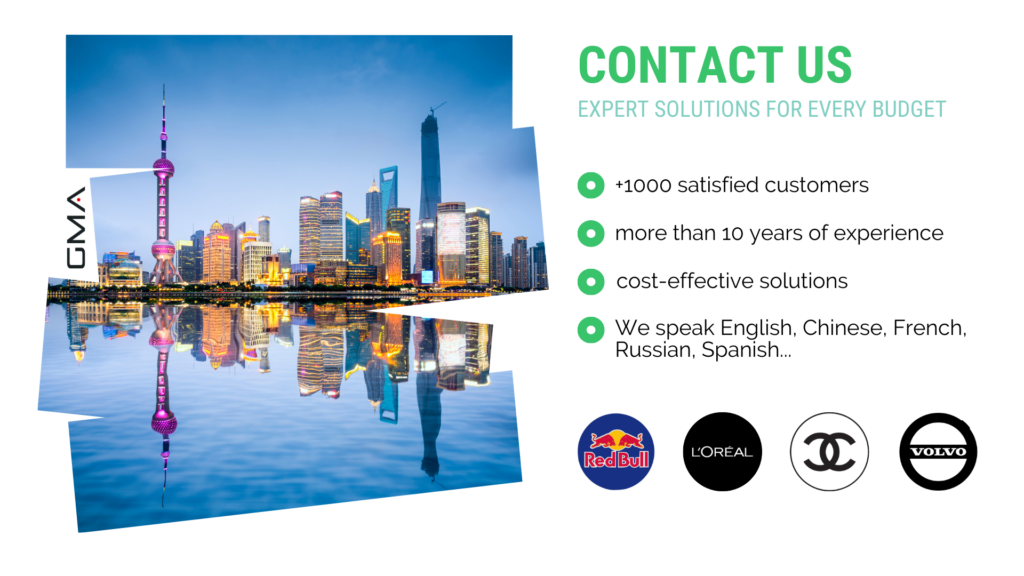
Proud of the success of our collaboration over the years, we are constantly trying to help brands expand their activities in China.
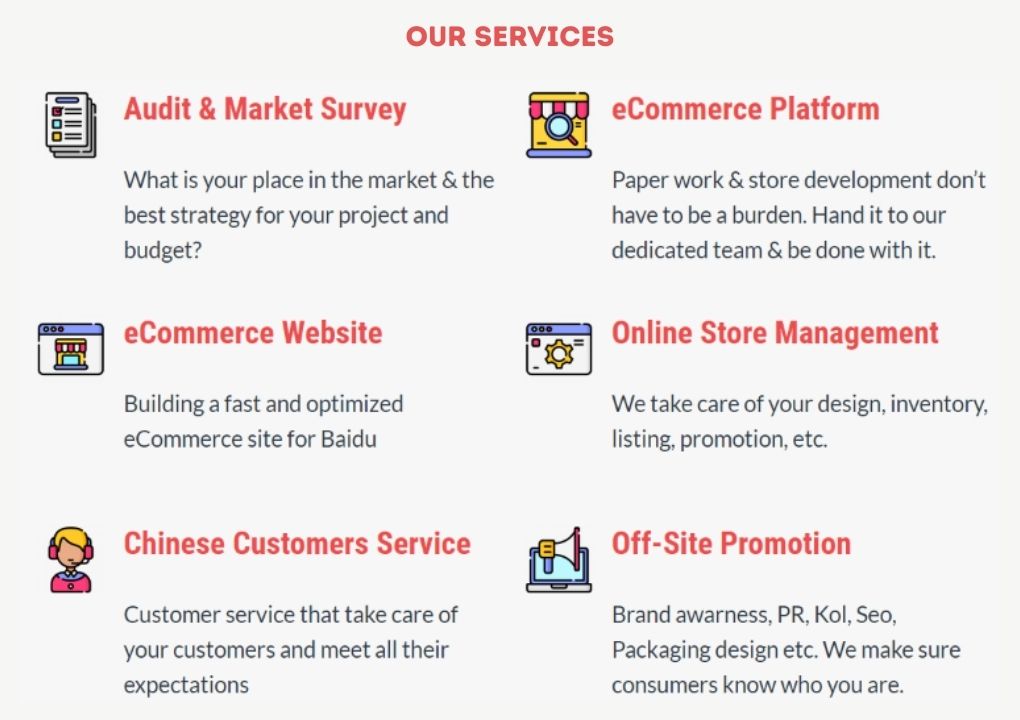
So, if you are interested or if you have questions about the skincare market in China, do not hesitate to contact us and we will reply within 24 hours.
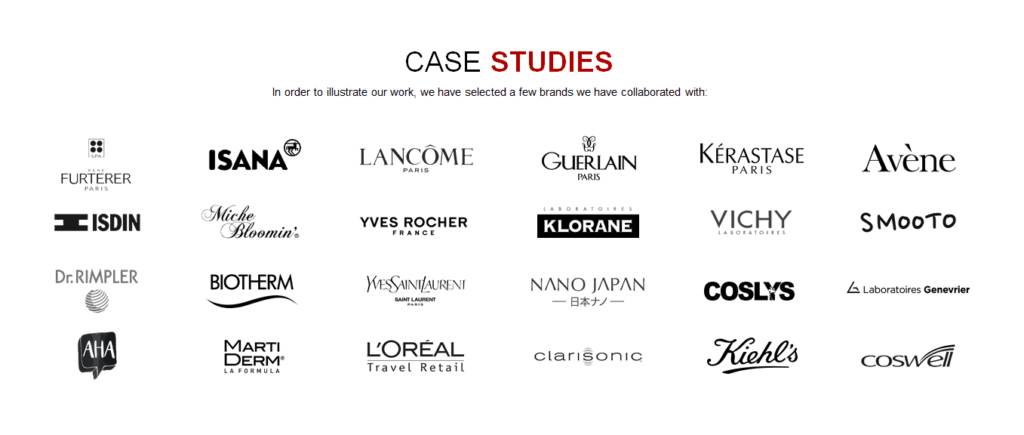

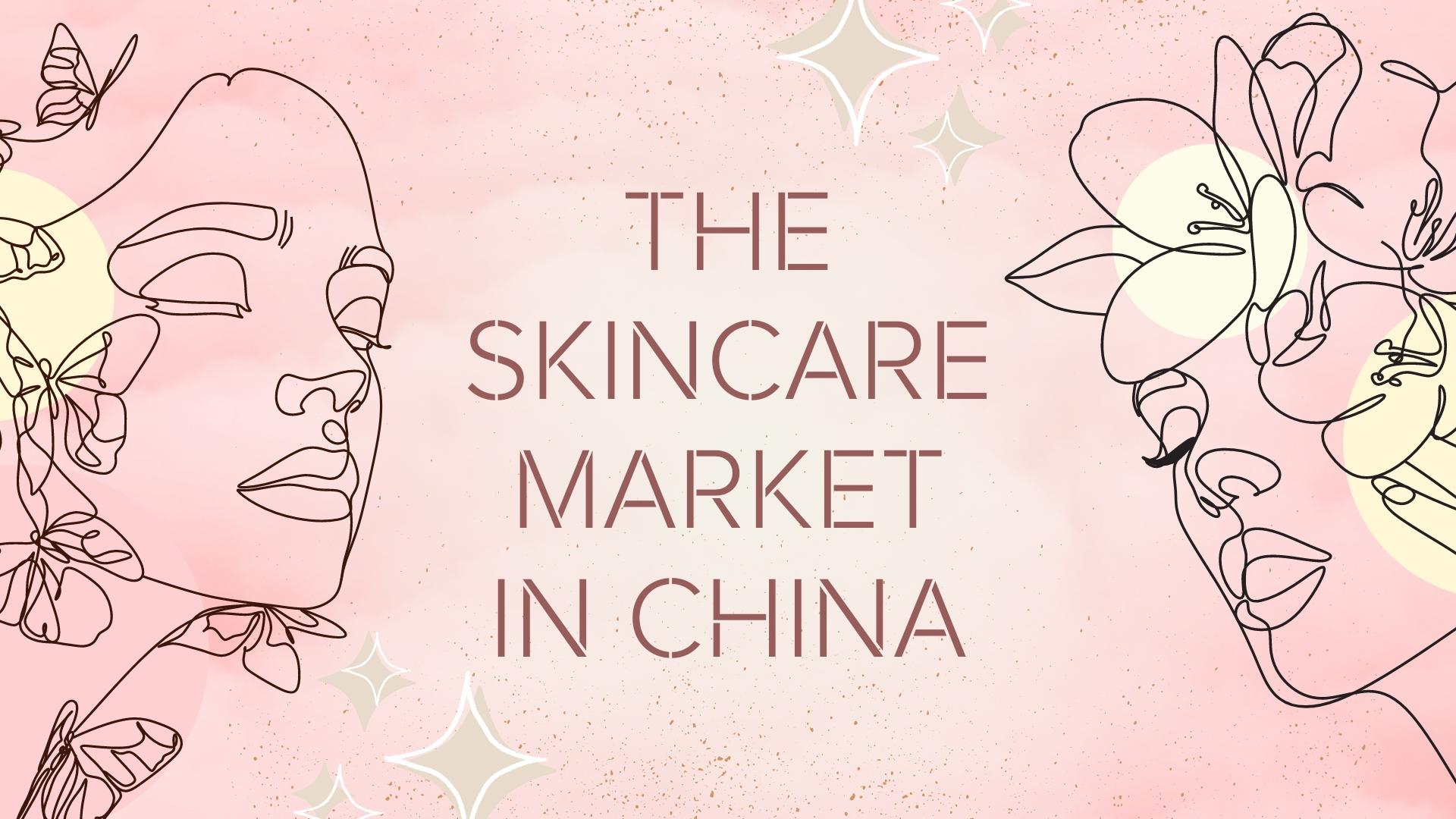
8 comments
Morita Junee
we are HILO ORGANIC SKINCARE from JAPAN wants to expand Market in China .need distributor and buyer as a partner.
Our product free alcohol,petroleum,pesticide,herbicides, additive,preservative.and NO ANIMAL CRUELTY.
all Product with Organic Certified.our Product Cleansing oil, Facial wash, Face lotion,Serum,anti aging and wrinkle.also hair Shampoo and Treatment.
Sohnali jain
Hey!
Our company Balade En Provence, has a vegan portfolio of skin and hair car products. They are not animal tested. We want to explore Chinese market which insists, animal testing. Thus, looking for guidance in order to export and sell our products in China.
Monica Ruelas
Hello,
We are very interested in your service and would like help launching our skincare line on Taobao. Please contact me to set up a video conference. We are in the United States, our skincare line is manufactured in the U.S only. Feel free to browse our website and we would like to see your case studies for our brand. Thank you.
Solene
Hi, I am looking for a distributor/branding company for Chinese market. Could you send me your case studies too? Thanks!
admin
Yes sure. Contact us first Solene. Email 😉
Frano
Dear Lady and Sir,
my name is Frano Leko from Croatia/Bosnia and Herzegovina and I am directly producer and exporter of ORGANIC Helichrysum Italicum OIL, 100% pure.
I am the owner of company LEKO ESSENCE d.o.o. registered in 2016, specialized in farming, cultivating and processing of ORGANIC Helichrysum Italicum OIL.
My current markets are USA and EU but I am seeking for buyer in China.
admin
We can help you to find distributor in China, and Market your Brand for Chinese Distributors …
contact us and we will send you our Case studies…